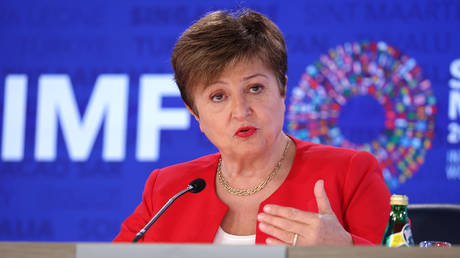Harris Aims to Reinstate Roe. Activists Demand More.
Democrats have prioritized restoring abortion access in their campaign for the White House and Congress, yet there are differing opinions on what that truly entails.

A day later, the convention's delegates endorsed a platform advocating a more moderate approach, reminiscent of Roe, as preferred by Vice President Kamala Harris and other party leaders. This platform would permit states to impose restrictions on later-term abortions.
Despite the Democrats' focus on reinstating abortion access in their race for the White House and Congress, the platform's approval on Monday night underscored persistent internal disputes over the precise implications of such a policy.
Harris, celebrated early on by many in the abortion-rights movement for her past roles and anticipated progressive stance, later aligned herself with President Joe Biden’s more conservative approach to Roe v. Wade, ensuring protections up to fetal viability and maintaining certain restrictive measures on clinics.
Some supporters investing in Harris’ campaign have voiced concerns over the Roe-centric strategy.
“Starting at Roe is the wrong framework,” said Alexis McGill Johnson, expressing dissatisfaction with the foundational principles of the landmark decision. “We don’t want just some of our rights,” she added, “We want them all.”
Advocacy groups close to Harris, however, recognize the political expediency of returning to Roe, despite aspiring for broader rights. They acknowledge the slim chance of passing more comprehensive legislation through Congress and consider reiterating Roe as a strategic, recognizable message for voters.
“I firmly believe that when Kamala Harris says and when Joe Biden says ‘restore Roe,’ that is shorthand for making abortion legal in all 50 states, and Americans support that. We polled on it. People get it,” said Mini Timmaraju.
While Harris navigates the divide between appeasing the base and not alienating centrist voters, she faces critiques similar to those directed at former President Donald Trump from his conservative base for his stance on state-level decisions concerning abortion bans.
Representatives from reproductive justice groups express frustration over what they perceive as political maneuvering that prioritizes electoral success over substantive policy advancements. “Democrats will always try to use this issue to win votes because it’s one of those issues that we need them on,” noted Ivy Czekanski during a protest in Chicago.
Additionally, over 400 medical professionals have urged Harris and Biden to adopt policies that provide broader protections than those established by Roe, highlighting the diverse needs for abortion access.
Despite appeals for deeper engagement from groups and individuals advocating for comprehensive reproductive rights, the platform confirmed on Monday pledges to restore Roe as the baseline, alongside commitments to dismantle existing funding restrictions and enhance access to various reproductive health services.
While some see the platform as a retreat from the more inclusive language of the party's previous platform in 2020, advocates for limiting abortion restrictions argue that public opinion is increasingly on their side, citing recent polling data.
As Democrats continue to capitalize on the momentum from abortion rights activism post-Dobbs decision, leveraging poignant personal stories at the convention, debates within the party and among its supporters about the scope of abortion rights persist, signaling ongoing challenges in shaping a unified stance that resonates with a broad electorate. While preserving Roe is seen as a necessary stepping stone, many are calling for more ambitious measures to safeguard reproductive freedoms comprehensively.As discussions unfold within the Democratic Party regarding abortion rights, the stakes are particularly high with the 2024 election approaching. Activists and party leaders alike understand that securing voter trust hinges on clearly articulated policies that go beyond mere platitudes. The increasing engagement of voters around reproductive rights, especially following the Supreme Court's decision in Dobbs, means that candidates must be prepared to address the diverse and often nuanced concerns surrounding abortion access.
In this environment, many progressive groups are rallying behind the Abortion Justice Now platform, which advocates for the complete removal of government restrictions on abortion. This push highlights a clear divergence from more moderate positions held by some party leaders. Jenni Villavicencio, an OB-GYN and co-author of Abortion Justice Now, underscores the necessity for the Democratic Party to prioritize the rights of those most adversely affected by restrictive abortion laws, especially vulnerable individuals facing complex medical situations or abusive relationships.
“Certainly we need to have a candidate that gets elected and that is willing to protect abortion rights,” Villavicencio noted, emphasizing the need for broader inclusivity in discussions around reproductive rights. Activists emphasize that while achieving electoral success is critical, it should not come at the expense of justice and equity for those who encounter systemic barriers to accessing necessary healthcare.
The dynamics around abortion rights are further complicated by varying voter sentiments on the issue. While polling indicates strong support for abortion access overall, nuances arise when conversations shift to later-term abortions, often leading to divisions in public opinion. Advocates maintain, however, that discussions should reflect the lived experiences of countless individuals who may need access to abortion care regardless of gestational age.
As the Democratic platform promises to uphold and expand reproductive health access—including distinct commitments to contraceptive accessibility, medication abortion, and in vitro fertilization—critics warn that these assurances must translate into actual political action. They argue the party should not settle for mediocrity in reproductive health policy when there's an opportunity for more transformative change.
Advocacy organizations close to the Harris campaign continue to apply pressure, pushing for a platform that embraces expansive reproductive rights while addressing real-world implications for people on the ground. “We can’t stop with just legislation to codify a federal right to abortion,” Timmaraju emphasized. “We have to push for more.”
This pushback reflects a broader sentiment among activists who feel that the Democratic leadership must take bold steps rather than rely on traditional frameworks that may not serve the interests of the diverse communities affected by reproductive laws. The integration of personal stories at conventions aims to bridge the gap between legislative promises and the realities faced by individuals requiring abortion care.
As the convention progresses, the contrast between grassroots activism and party leadership becomes increasingly pronounced. Activists declare their commitment to holding elected officials accountable, demanding substantive action in addition to electoral promises. Many within the movement vow to continue advocating for comprehensive reforms, striving to ensure that no person's rights are sidelined in political discussions.
The upcoming election cycle is seen as a pivotal moment for the Democratic Party, with abortion rights at the forefront of the national conversation. The ability of party leaders to unite differing factions and advance a coherent message on reproductive rights will be crucial in mobilizing the electorate. Activists remain vigilant, ready to challenge any reluctance to embrace a more expansive view of bodily autonomy and justice for all individuals, regardless of their circumstances.
In essence, the dialogue surrounding abortion rights within the Democratic Party exemplifies not just a political struggle, but a moral imperative to address the complexities and realities of reproductive health. As voices from within the party and the grassroots align, the hope is that the outcome will resonate with the values of justice, equity, and comprehensive health care for all.
Max Fischer for TROIB News












